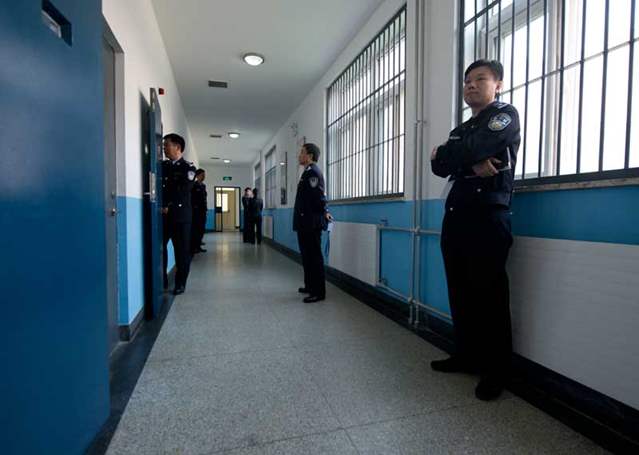Overview
It is easy sometimes to think that the rights of prisoners have little to do with us – that they have somehow exchanged their rights for a life of crime. This is wrong on two counts. Firstly, everyone has the same rights and they can never be taken away, no matter where you are, or what you may have done. Secondly, just because you are in prison, it does not mean you are guilty of a crime – if you were lucky enough to have a trial, it may not have been a fair one.
Since we began in 1961, Amnesty activists have been ready to spring into action for people facing imminent danger in detention. From sending faxes and tweets to making phone calls or taking to the streets. “… The phone calls to the police during my arrest saved me from torture and rape. The police station was so swamped they stopped picking up the phone,” says Women of Zimbabwe Arise (WOZA)’s co-founder Jenni Williams.
While there have been thousands of victories, systemic change is harder to come by, and far too many people are still languishing in isolation, incommunicado, in fear.

The problem
There are seven main problems.
- Prisoners of conscience – someone who has not used or advocated violence or hatred in the circumstances leading to their imprisonment but is imprisoned solely because of who they are (sexual orientation, ethnic, national or social origin, language, birth, colour, sex or economic status) or what they believe (religious, political or other conscientiously held beliefs).
- Arbitrary detention – being detained for no legitimate reason or without legal process.
- Incommunicado – being detained without access to family, lawyers.
- Secret detention – being detained in a secret location.
- Inadequate prison conditions – such as overcrowding and prolonged solitary confinement.
- Unfair trials – trials conducted without ensuring minimum legal process.
- Torture and other forms of ill-treatment.
Amnesty is calling for
• No secret detentions.
• No torture or other forms of ill-treatment.
• Rapid and regular access to lawyers, doctors and relatives.
• Effective legal process so that people can challenge their detention and treatment.
• Independent judges.
• Adequate detention conditions. Including an end to prolonged solitary confinement.
• Prompt and independent investigations when someone dies in detention.
• Independent Monitoring bodies make regular visits to detention places.
• Fair trials within a reasonable time or release.
• All prisoners of conscience released without conditions.
The issue in detail
Under international human rights law, no one can be detained without a legitimate reason and, anyone accused of a crime has the right to a fair trial. But in many countries throughout the world, no proper process is followed and no safeguards are in place: such as lawyers present during interrogations; independent doctors on-hand to examine detainees; contact with families and ensuring confessions obtained by torture can never be used as evidence.
Amnesty’s Fair Trial Manual is a practical guide to international fair trial standards. It is a vital tool for lawyers, judges and trial observers. It is also used by political prisoners representing themselves in court as a DIY defence guide – such as Albin Kurti who used the Manual to represent himself before a UN tribunal in Kosovo and was released.
Detainees are entitled to the rights and standards enshrined in international law. At the universal level, the main protections are contained in:
- International Covenant on Civil and Political Rights
- UN Convention Against Torture and Other Cruel, Inhuman or Degrading Treatment or Punishment and its Optional Protocol
- UN Convention for the Protection of All Persons from Enforced Disappearance
- UN Convention on the Rights of the Child
- UN Body of Principles for the Protection of All Persons under any Form of Detention or Imprisonment
- UN Standard Minimum Rules for the Treatment of Prisoners
- UN Rules for the Treatment of Women Prisoners and Non-custodial Measures for Women Offenders (‘the Bangkok Rules’).
- United Nations Standard Minimum Rules for the Administration of Juvenile Justice (“the Beijing Rules”)
- United Nations Rules for the Protection of Juveniles Deprived of their Liberty
- UN Standard Minimum Rules for Non-custodial Measures (the ‘Tokyo Rules’).

